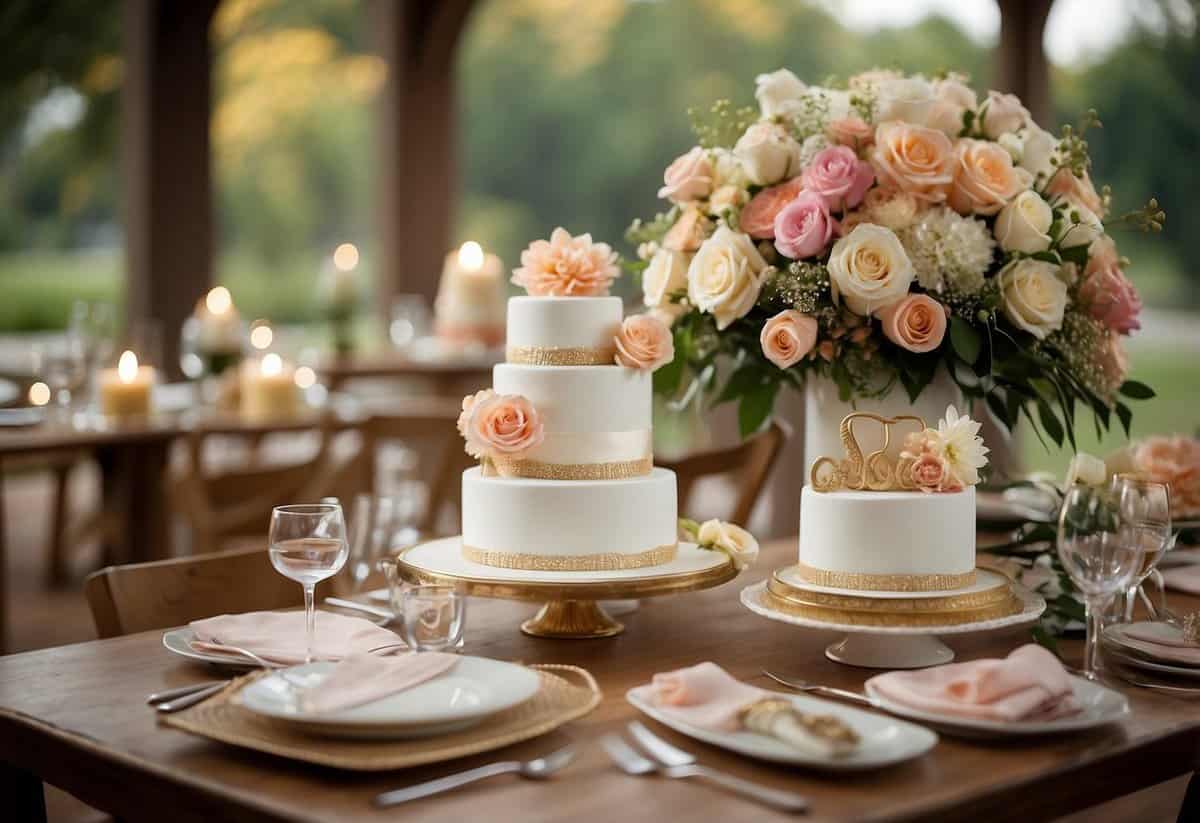How Do Most Couples Pay for a Wedding? Tips and Tricks
When you start planning your wedding, one of your first thoughts might be about how to pay for everything. It’s a big question, but many couples handle it with a mix of personal savings, family contributions, and sometimes even loans. Most couples create a detailed wedding budget to keep track of their expenses and decide who pays for what.

Typically, the average wedding cost in the United States is around $27,000. This can vary widely based on location, preferences, and guest count. Millennials often find that their parents cover about 56% of the costs, while they handle the rest. On the other hand, Gen X couples usually pay for a larger portion of the expenses themselves.
If you’re thinking of having a wedding abroad, you might be wondering about who pays for the international wedding costs. These can include travel and accommodations, so it’s essential to discuss this with family early on. By planning carefully and discussing expectations openly, you can manage your wedding expenses without too much stress.
Crafting a Realistic Wedding Budget
When planning for a wedding, it’s crucial to create a budget that aligns with your financial situation. Start by understanding the typical costs, then set a budget, and break down the expenses to manage the financial burden effectively.
Understanding the Average Wedding Cost
In the U.S., the average wedding costs around 30,000 dollars. This number can vary greatly based on the location. For instance, weddings in major cities like New York can be more expensive. Knowing these averages helps you set realistic expectations.
Research is key. Look into local costs for venues, catering, and other services. It’s common for couples to underestimate expenses, especially for big-ticket items like the venue or catering, which can lead to financial surprises.
Setting a Budget
Setting a budget starts with deciding how much you can comfortably spend. Consider savings, contributions from family, and what you can save from your monthly income. For example, if you plan to spend 20,000 dollars, you might save about 1,700 dollars a month over a year.
Prioritize areas that are most important to you. Allocate funds where you can’t compromise, such as the venue or attire, and find areas where you can cut back. Being realistic about your finances helps prevent overspending.
Breaking Down Wedding Expenses
Breaking down your expenses involves assigning percentage amounts to different categories. For instance:
| Expense Category | Budget Percentage |
|---|---|
| Venue and Catering | 40% |
| Attire | 7% |
| Photography | 10% |
| Flowers and Décor | 10% |
| Entertainment | 10% |
| Miscellaneous | 23% |
It’s vital to adjust these percentages based on your needs and priorities. Regularly review your budget and make adjustments as necessary. This approach ensures you stay within your financial limits while planning your dream wedding.
Ways to Finance Your Wedding
Financing a wedding can be done through various means, including dipping into savings, receiving help from family, or taking out loans and using credit cards. Below are some practical ways to handle wedding expenses efficiently.
Savings and Personal Funds
Using your savings is one of the most straightforward ways to finance your wedding. If you have set aside money in a savings or retirement account for this purpose, you can draw from there.
Setting a dedicated wedding fund early can simplify budgeting. Divide your total wedding budget by the number of months left before your wedding to determine how much you need to save monthly. For example, if you need $20,000 and have 12 months, save around $1,700 monthly. Prioritize saving by cutting back on non-essential expenses, which will help ensure you have adequate funds.
Family Contributions
In many cases, families help cover wedding costs. Discuss with your family who pays for what to avoid misunderstandings. Traditionally, the bride’s parents might pay for the reception, while the groom’s parents handle the rehearsal dinner. However, modern weddings often see a mix of both sides contributing based on their financial situations.
Gratitude is essential. Thank your family for any financial help they provide, and respect any conditions attached to their contributions. Open and honest communication about what each family can and will contribute can alleviate stress and ensure everyone is on the same page.
Personal Loans and Credit Cards
Some couples opt to take out a personal loan or use credit cards to finance their wedding. Personal loans can provide a lump sum that you repay over time, potentially with lower interest rates compared to credit cards. Loan amounts vary widely, ranging from $1,000 to $100,000.
Credit cards offer flexibility and can help with smaller, more immediate expenses. This route can be risky due to high interest rates, so consider using credit cards with no-interest introductory periods. Always plan a repayment strategy to avoid falling into debt. Using credit responsibly can help manage costs without straining your future finances.
Key Wedding Elements and Their Costs

Planning a wedding involves several key elements, each contributing significantly to the budget. Some of the biggest expenses include the venue, catering, photography, videography, attire, rings, décor, and floral arrangements.
Venue and Catering
The venue is a major part of your wedding budget. Renting a wedding venue can cost anywhere from $3,000 to $15,000 depending on the location, size, and amenities offered. Popular venues like hotels, farms, and banquet halls can be more expensive.
Catering typically goes hand-in-hand with the venue. Most couples spend between $4,000 and $10,000 on food and drink. Some venues include catering in their packages, while others require you to hire an outside service. Choices like a plated dinner, buffet, and hors d’oeuvres all influence costs. An open bar significantly increases the bill but is often considered worth the splurge for many couples.
Photography and Videography
Capturing your special day is priceless, but it does come with a cost. Hiring a professional photographer generally costs between $2,500 and $5,000. This includes a full day of shooting, editing, and providing high-quality images. Some couples also book a videographer to record the event. Videography services range from $1,500 to $3,000 depending on the length of coverage and the final edited video.
Choose packages that include an engagement shoot, digital copies, and albums. Popular photographers may charge more, so booking early can sometimes save money and ensure availability.
Attire and Rings
Your wedding attire and rings are personal and symbolic investments. The wedding dress often costs between $1,000 and $3,000, but designer gowns can be significantly more. Suits or tuxedos for the groom typically range from $200 to $500. Don’t forget to budget for shoes, accessories, and possible alterations, which can add several hundred dollars more.
Wedding rings are another essential cost. Engagement rings average around $5,000, while wedding bands usually cost between $500 and $2,000 each, depending on the material and design.
Décor and Floral Arrangements
Decorations and flowers add elegance and beauty to the ceremony and reception. Couples generally spend between $2,000 and $4,000 on these items. This includes everything from centerpieces and altar flowers to table linens and lighting.
Floral arrangements can be a significant part of this budget. Bouquets, boutonnieres, and other floral decorations for the ceremony and reception can quickly add up. Exotic flowers or elaborate designs will increase the cost, but many florists offer packages to suit different budgets.
Planning your wedding means balancing these costs to create the perfect day without overspending. Each element adds up, so choose wisely and prioritize what matters most to you and your partner.
Managing Additional Wedding-Related Events
Planning and budgeting for wedding-related events can be just as important as the wedding itself. Here are some steps and tips to manage these key occasions.
The Rehearsal Dinner
The rehearsal dinner is often held the night before the wedding. It brings together the wedding party and close family members. Typically, the groom’s family covers this expense, but modern couples sometimes choose to split or take on the cost themselves.
To manage costs, you can choose a less formal venue such as a favorite local restaurant. Some couples opt for backyard barbecues or potluck-style gatherings which can help in keeping expenses low. Make sure to budget for food, drinks, and any decorations or entertainment you wish to include.
Tip: Sending out digital invitations can save money and time.
Pre-wedding Parties
Pre-wedding parties like the engagement party, bachelor party, and bachelorette party are exciting events but can add up quickly. Traditionally, the engagement party is hosted by the bride’s family, while friends or members of the wedding party often host the bachelor and bachelorette parties.
To manage these events:
- Engagement Party: Opt for a casual style like a backyard barbecue or a small gathering at home.
- Bachelor/Bachelorette Parties: Keep festivities close to home to avoid travel costs. Consider day events or overnights instead of elaborate trips.
Tip: Discuss a budget and agree on activities that everyone can afford.
The Honeymoon
The honeymoon can be one of the most expensive parts of getting married. Typically, the couple finances this trip, although sometimes family members contribute as a gift. To manage this effectively, start by deciding on a realistic budget and stick to it.
Consider traveling during the off-season, which can significantly reduce costs. Look for package deals or use travel reward points if you have them. Renting an apartment or house rather than staying in a hotel can also save money, especially for longer stays.
Tip: Book flights and accommodations well in advance to take advantage of early bird rates.
Mitigating Wedding Stress
Planning a wedding can be overwhelming, but there are strategies to help reduce stress. Prioritize delegation, consider hiring professionals, and maintain a focus on what truly matters.
Delegate Wisely
One of the best ways to reduce stress is to delegate tasks to trusted friends and family members. A wedding planner can also be a lifesaver, managing many of the details for you. By assigning responsibilities, such as venue selection or managing the guest count, you can focus on the bigger picture.
Consider creating a list of tasks and matching them with people who are best suited to handle them. For example, if someone has a knack for organization, they could help with the marriage license paperwork. Delegation not only lightens your load but also makes loved ones feel included.
Seek Professional Help
Hiring professionals, like a wedding planner, can significantly reduce stress. These experts know the ins and outs of wedding planning and can handle everything from booking a spa day for relaxation to organizing a destination wedding.
During the current pandemic, professionals can also provide guidance on health and safety protocols. They can help navigate changing regulations and preferences, ensuring your wedding day remains special while keeping everyone safe.
Consider meeting with potential planners to find someone who understands your vision and can execute it flawlessly. A good wedding planner will keep both you and your partner calm and focused on each other.
Focus on the Big Picture
Remember why you’re getting married in the first place. It’s easy to get lost in the details and lose sight of the meaningful moments. Try to focus on the importance of the ceremony and your life together post-wedding.
If the pressure of planning becomes too much, take a step back and spend time together doing something enjoyable. This could be a relaxing day at the spa or a simple date night.
Keep in mind that it’s not about the perfect wedding, but the happiness and love you share. Whether it’s a large celebration or an intimate gathering, what matters most is the commitment you are making to each other.
By delegating tasks, seeking professional help, and focusing on what truly counts, you can make the wedding planning process more enjoyable and less stressful.



